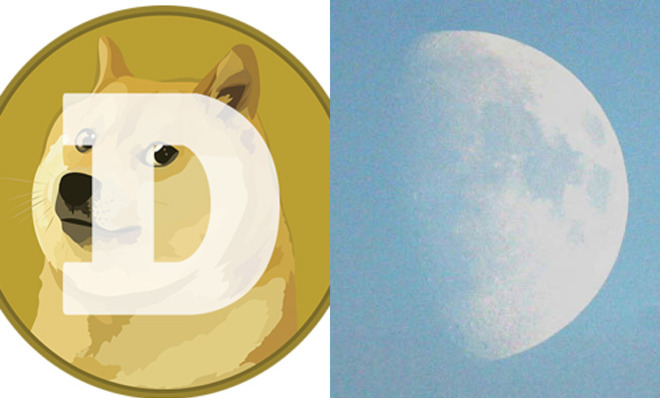Why Dogecoin could go to the moon
Wow. Such coin. Many Doge. How currency.

A free daily email with the biggest news stories of the day – and the best features from TheWeek.com
You are now subscribed
Your newsletter sign-up was successful
Last month I bought some Dogecoins, the new cryptographic currency based on Doge, 2013’s meme of the year. The only thing I have used them for is giving them away to my followers on Twitter.
But while Dogecoin began as a joke, I and others — such as Business Insider’s Joe Weisenthal — took it pretty seriously from the start. And since its launch on Dec. 8th, it has showed how a new online currency can quickly take on qualities of money and become a medium of exchange.
Dogecoin is built on the original open-source Bitcoin software, which means it is a fast, secure, and inexpensive way of sending money anywhere in the world. People are already using it to buy and sell goods and services on online forums such as Reddit’s Dogemarket, and to tip other Reddit users’ comments.
The Week
Escape your echo chamber. Get the facts behind the news, plus analysis from multiple perspectives.

Sign up for The Week's Free Newsletters
From our morning news briefing to a weekly Good News Newsletter, get the best of The Week delivered directly to your inbox.
From our morning news briefing to a weekly Good News Newsletter, get the best of The Week delivered directly to your inbox.
But more than that, I was impressed by Dogecoin’s rapidly growing community and powerful identity. Dogecoin, unlike the hundreds of other cryptocurrencies that have sprung up, had an immediately recognizable personality and a strength of character that the market leaders — Bitcoin and Litecoin — seemed to lack. It was, for lack of a better word, fun.
Typically, countries put the faces of political leaders or other national luminaries on their currency. But cryptocurrencies are not tied to any state. They are an internet payment system. Why not make a Shiba Inu that has made millions of people around the world laugh the face of internet money?
This week, Dogecoin’s Reddit community — in the spirit of the Disney classic Cool Runnings — raised $40,000 to send the cash-strapped Jamaican bobsled team to the Winter Olympics in Sochi, Russia. This great act of charity will not only allow some people to achieve their dream of competing at the Olympics, but also showed the potential for Dogecoin as a medium for large-scale giving.
Furthermore, it succeeded in raising the profile of Dogecoin. Dogecoin is already the second most-traded cryptocurrency in the world by volume, with $14,830,106 traded in the last 24 hours, behind only Bitcoin with $20,499,372. That’s some pretty impressive growth for a coin less than two months old.
A free daily email with the biggest news stories of the day – and the best features from TheWeek.com
Of course, the internet is fickle and technology is ever-evolving. Dogecoin and its siblings may be superseded by new competitors offering technological improvements. Or it could be damaged by legal restrictions. But by having a strong identity rooted in internet culture, and by drumming up some lighthearted publicity, Dogecoin has succeeded in becoming part of the language of social media — which is integral to the success of any crypto-currency.
John Aziz is the economics and business correspondent at TheWeek.com. He is also an associate editor at Pieria.co.uk. Previously his work has appeared on Business Insider, Zero Hedge, and Noahpinion.


